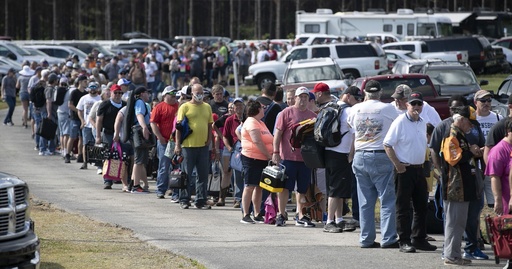
In Raleigh, North Carolina, the state Supreme Court ruled that Ace Speedway in Alamance County can proceed with its lawsuit against the top health regulator, accusing Governor Roy Cooper’s administration of violating their constitutional rights during the pandemic. The court unanimously agreed that the speedway’s claims seeking financial damages can proceed, as they allege selective enforcement and infringement on their rights by the state government.
The lawsuit stems from events in 2020 when the racetrack defied state gathering limits and continued holding events despite orders to comply with crowd-size restrictions. State lawyers argued that the enforcement actions were justified due to public health concerns during the early stages of the pandemic. However, the Supreme Court found that the speedway’s claims of unlawful selective enforcement and infringement on their rights were plausible and should be heard in court.
The ruling, which was a legal blow to Governor Cooper, allows the case to return to trial court for further proceedings. The Department of Health and Human Services is currently reviewing the decision. The court emphasized that the allegations made by Ace Speedway remain unproven but constitute colorable claims under the North Carolina Constitution, warranting further litigation.
The dispute between Ace Speedway and the state government began when the speedway hosted thousands of spectators shortly after gathering limits were imposed. Despite orders to comply, the speedway continued to operate with large crowds, leading to its eventual closure by the Cooper administration. The lawsuit alleges that the speedway was targeted unfairly due to its operators’ vocal opposition to the restrictions.
The decision by the Supreme Court sets a precedent for similar cases involving the governor’s powers during health emergencies. Other court cases challenging Governor Cooper’s executive orders are pending, including disputes filed by standalone bars claiming unconstitutional treatment compared to restaurants during the pandemic. These cases could have broader implications for the legality of executive orders in future emergencies.
